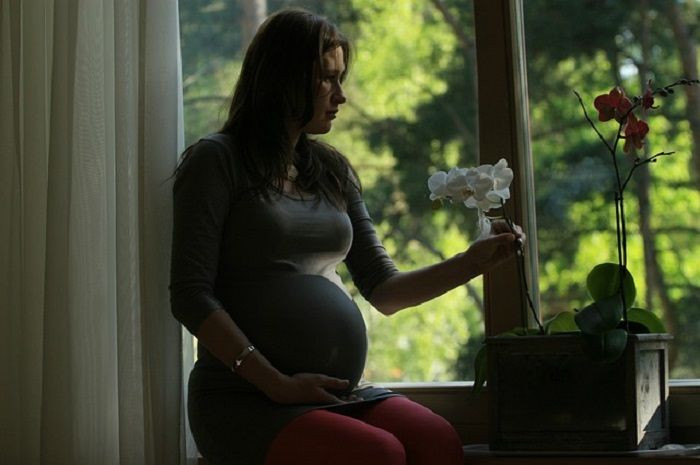Depression Screening For Pregnant and Pospartum Women Recommended By U.S. Preventive Services Task Force

The U.S. Preventive Services Task Force (USPSTF) on Tuesday issued new depression screening guidelines, recommending that all adults, including pregnant and postpartum women, be screened for the mood disorder.
“Depression is among the leading causes of disability in persons 15 years and older. It affects individuals, families, businesses, and society and is common in patients seeking care in the primary care setting. Depression is also common in postpartum and pregnant women and affects not only the woman but her child as well,” the USPSTF wrote.
After conducting a systematic review of medical literature, the task force found that screening for depression can improve clinical outcomes by reducing or sending depression symptoms into remission in adult patients, including pregnant and postpartum women, in primary-care settings.
“If you just wait for patients to say they’re depressed, you miss a significant number of people who are depressed and would benefit from treatment," Dr. Michael Pignone, a USPSTF member, told Reuters.
The mood disorder, which affects approximately 14.8 million U.S. adults, is a debilitating and sometimes life-threatening disease characterized by extended periods of sadness and despair. Women experience depression at twice the rate of men perhaps due to hormonal factors unique to women. During and after pregnancy, women go through many hormonal changes which impact brain chemistry, and hence influence mood and behavior, according to the U.S. Department of Health and Human Services.
The group found convincing evidence that adults identified through screening in primary care settings and treated with antidepressants, psychotherapy or both, had a reduced risk of clinical morbidity. Clinicians are encouraged to consider cognitive behavioral therapy for pregnant and postpartum women given the potential harm antidepressants may have on the fetus and newborn child.
“Depression has a major effect on quality of life for the patient and affects family members, especially children. Depression also imposes a significant economic burden through direct and indirect costs. In the U.S, an estimated $22.8 billion was spent on depression treatment in 2009, and lost productivity cost an additional estimated $23 billion in 2011,” the task force wrote.
About 80 percent of those who receive treatment for their depression see an improvement in their symptoms within four to six weeks of beginning psychotherapy, attending support groups or a combination of these treatments, according to the Depression and Bipolar Support Alliance. Treating symptoms of depression can also avert other chronic disease or illnesses, including heart disease and Alzheimer’s disease. However, despite its high treatment success rate, more than 80 percent of people who have symptoms of clinical depression are not receiving treatment for the serious illness, according to Healthline.
The panel’s new recommendations update its 2009 guidelines which didn’t specifically recommend screening for depression in pregnant and postpartum women and advised adults 18 years and older to be screened at “clinics where systems are in place to connect at-risk individuals to mental health care,” CNN reported. In the new guidelines, the task force omitted the recommendation regarding selective screening, as it no longer represents current clinical practice.
Published by Medicaldaily.com



























